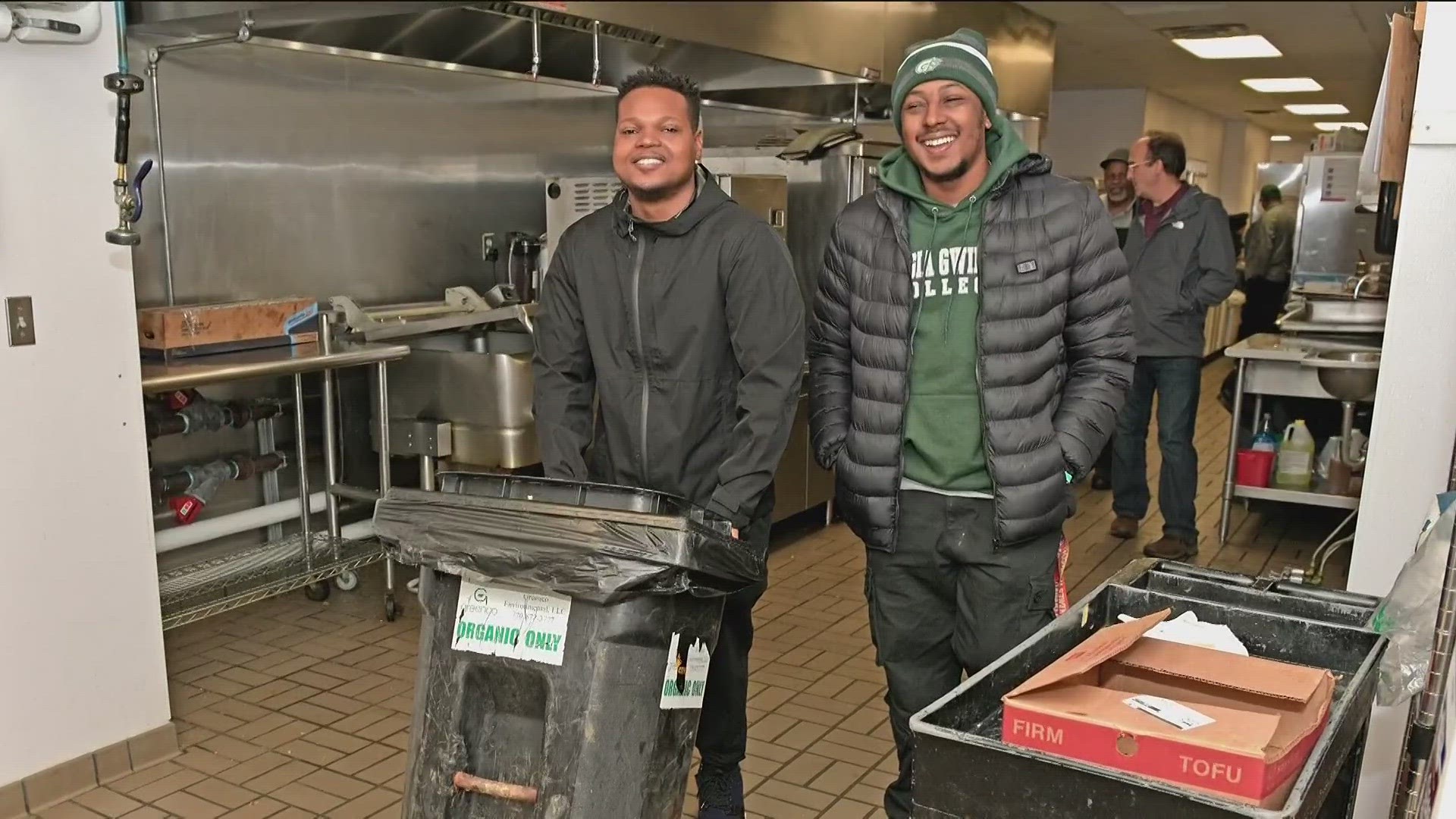GWINNETT COUNTY, Ga. — Earth Day is April 22, and across metro Atlanta, events will take place to promote awareness around recycling, reusing and preservation.
But a group of students at Georgia Gwinnett College are already walking that talk, part of a new program to transform leftovers from the dining hall into a long-term solution for food insecurity.
"It's a cyclical system," Stephen Johnson, a senior at the college, explained. "From raw to the soil to producing good food."
Johnson started the "Roots to Shoots" program last fall, an effort to re-purpose food waste he was seeing each day in the campus dining hall. After the idea was accepted as a senior CAPSTONE project, Johnson and sophomore Keaton Hartfield started visiting the dining hall twice a week, collecting leftovers for the new composting program.
"It's varied from 80 to 120 pounds," Johnson said.
The food waste is turned into soil compost at GGC’s microfarm, which is used to grow fruits and vegetables for the dining hall and local food banks.
James Russell, a professor of biology and member of the Environmental Science Institute, walked 11Alive through the difference in soils, one now capable of growing healthy food.
"I can barely stick my finger in this soil, it's so hard," Russell said. "Now if you come over here, this is a much better base for the plants. This has nutrients as well."
Only a few months into the project, the microfarm is already starting to show signs of the produce to come: potatoes, corn, fava beans, herbs and tomatoes are among the first crops the team expects to harvest.
"When I first came here, none of this was here," Hartfield said. "It's crazy that I'm a part of this process and seeing it growing like this."
Russell also pointed out the critical participation of everyone involved: from the dining hall staff which collects the food to fleet services helping with transportation, to nonprofits like the Food Well Alliance that donated the compost bins.
“It’s an excellent example of the good that can be done when different areas work together," he said.
The students hope the garden can go full circle. From students' plates in the dining hall to the recycling process of compost benefitting roots in the ground, and the food produced going to students in need. Right now, the team plans to share produce with the college's on-site care pantry, as well as local food banks like the Lawrenceville Co-op.
"We could do a lot with what we have here," Johnson said. "We could sustain the college and we could sustain people in the community as well."

